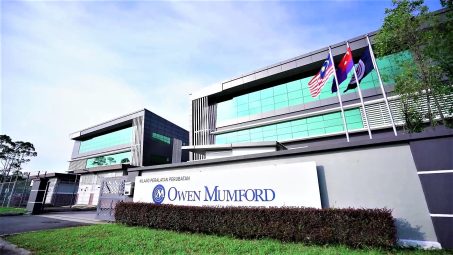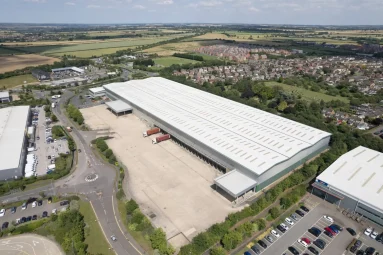
Five Ways Blockchain Can Unblock Your Supply Chain
Futurist Don Tapscott said blockchain will allow companies to revolutionise their business models, but how can the technology unblock your supply chain?
Written by: Claire Walters, Chief Commercial Officer, Unipart Logistics
The conversation around data sharing can be a particular challenge for enterprises because of issues such as cost, information security, implementation, data standards, and relationship management. And yet, for urban logistics strategies and other complex supply chains to be realistic and effective, it is crucial that data sharing objectives are defined and agreed by all parties.
Unlike other platforms, blockchain is not susceptible to data alteration and can record transactions safely between participants. That makes it especially relevant to today’s increasingly globalised supply chains with multiple stakeholders across varying industries.
Here are five ways in which blockchain could potentially enable smarter and more effective data sharing.
Reduce costs by consolidating transaction protocols
If connectivity was a highway and data was the traffic moving around it, transaction protocols would be the rules of the road. Blockchain consolidates these, making information sharing faster and simpler. Unsurprisingly, more efficient information-sharing processes translate into more cost-effective ones.
Integrating blockchain technology into the supply chain could also assist with reducing the number of complex layers involved, for example the need for middle management. Transactions could be freed by consolidating assets and operations on streamlined staff levels, further lowering supply chain costs.
Use blockchain to improve data transparency and eradicate fraud
Increased supply chain connectivity and data sharing poses heightened risks to information security. One of the key benefits of blockchain is the immutability of its data. Digital transactions cannot be forged or altered, effectively eliminating the risk of fraud from the supply chain. By registering the identity and transfer of all goods as transactions, blockchain could also ensure transparency in the supply chain.
This means any relevant information required in managing the supply chain could be recorded and shared throughout the stable network, enabling real-time collaboration and strengthening supplier relationships.
Simplified information sharing could boost productivity
When information sharing is simpler, companies can operate more productively. This is particularly applicable to the distribution and transportation industries, where the introduction of blockchain technology could effectively increase supply chain visibility and agility.
Tracking devices implemented through blockchain could be attached to products, cases and pallets, monitoring an item’s every move from warehouse through to delivery. Identity chips, sensors or barcodes could then communicate with the network, providing real time updates to supply chain operators and relevant stakeholders in the blockchain network.
Define common data standards using distributed ledger technology
Poor quality data can severely limit an organisation’s ability to generate accurate supply chain insights, making a lack of data standards a clear obstacle to information sharing. Whether it is generated internally or received from a third-party, data must be reliable, timely, accurate, and credible if meaningful logistics insights are to be drawn from it.
Blockchain’s distributed ledger technology could well address this; since data is securely shared and synchronised, there is no need for a centralised administrator or data storage solution, driving data integrity and higher customer and supplier integration.
Increase visibility and responsiveness to earn stakeholder trust
It’s no secret that seamless information sharing encourages positive business relationships between parties. As data-sharing requirements continue to increase, maintaining visibility from multiple stakeholders is key to efficiency and responsiveness in the supply chain.
As a permission-based network, blockchain could alleviate common concerns about privacy, granting customisable levels of access. In addition to this, confidential data could be encrypted so that it is only visible to approved members.
While it is still early days in regard to adoption, blockchain technology presents exciting opportunities for supply chain directors and heads of logistics looking for simpler, more transparent and secure data sharing, alleviating many of the concerns currently limiting urban logistics strategies and greater supply chain connectivity.
For more information on how emerging technologies can benefit your supply chain activities, contact Claire Walters (claire.walters@unipart.com).
More in Manufacturing

Intertronics: Driving Innovation in Adhesives and Assembly Solutions
For over four decades, Intertronics has been at the forefront of providing high-performance adhesives, coatings, sealants, and application equipment to industries that demand precision and reliability. From electronics and medical devices to automotive and aerospace, Intertronics’ expertise ensures that manufacturers can optimise their bonding and assembly processes with cutting-edge solutions.

Unipart named CCS supplier
Unipart has been named as a supplier on Crown Commercial Service’s (CCS) Logistics, Warehousing and Supply Chain Solutions (RM6329) framework agreement.

Owen Mumford: 70 Years of Innovation in Healthcare
Owen Mumford has been at the forefront of medical device innovation for over 70 years, pioneering solutions that enhance patient care and improve healthcare outcomes worldwide. Established in 1952 by Ivan Owen and John Mumford, the company has grown into a global leader in medical device design and manufacturing, with a commitment to quality, sustainability, and patient-centred innovation.
From this author

Unipart named CCS supplier
Unipart has been named as a supplier on Crown Commercial Service’s (CCS) Logistics, Warehousing and Supply Chain Solutions (RM6329) framework agreement.

Unipart partners GBUK
Unipart has formed a strategic partnership with GBUK

Unipart launches in Vietnam
Unipart, the supply chain performance improvement partner, has launched operations in Vietnam.

